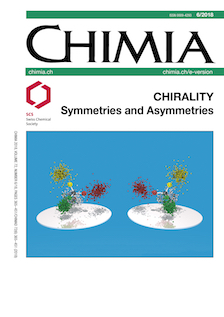Drugs Based on de novo-developed Peptides are Coming of Age
Medicinal Chemistry and Chemical Biology Highlights
DOI:
https://doi.org/10.2533/chimia.2018.426Keywords:
Cyclic peptide, Drug development, In vitro evolution, Peptide, Phage display, Protein epitope mimetics, Ribosome displayAbstract
Naturally evolved peptides, such as the hormone oxytocin or the anti-bacterial vancomycin, have seen decades of success as powerful therapeutics due to many of the favorable properties of peptides. Not every desired target has a naturally occurring bioactive peptide, so rational design and random in vitro evolution techniques have been developed and applied to generate peptide leads de novo. However, can these artificially created peptides be translated into successful therapeutics? Several drug development programs involving de novo-generated peptide ligands have made important progress recently, and we report here on these exciting activities.Downloads
Published
2018-06-27
Issue
Section
Columns, Conference Reports
Categories
License
Copyright (c) 2018 Swiss Chemical Society

This work is licensed under a Creative Commons Attribution-NonCommercial 4.0 International License.
How to Cite
[1]
K. Deyle, C. Heinis, Chimia 2018, 72, 426, DOI: 10.2533/chimia.2018.426.







